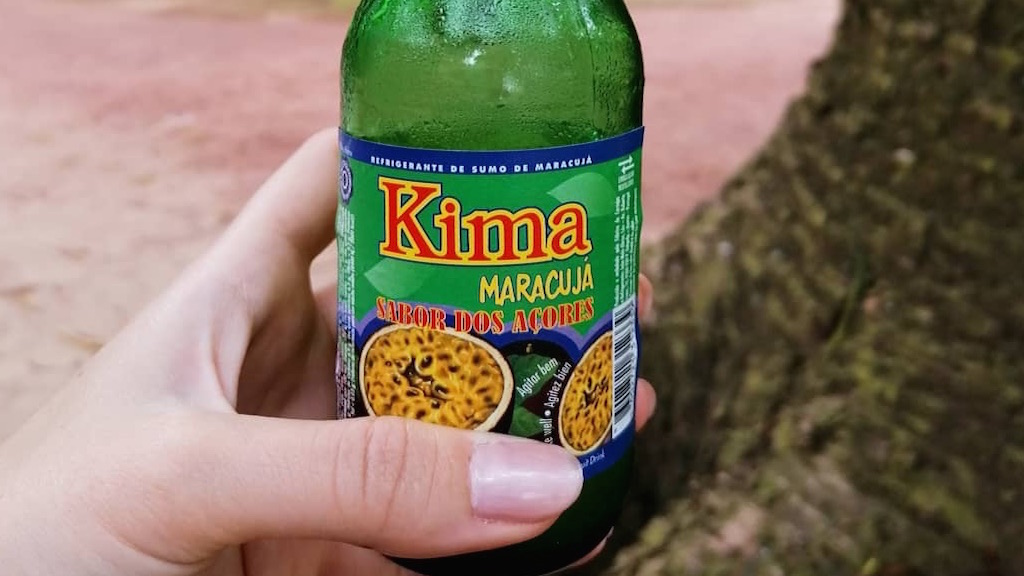Alcohol-free Portuguese drinks you will love to try

Think of Portugal and drinks such as Port wine, vinho verde and ginjinha immediately come to mind. Portugal not only has one of the highest rates of alcohol consumption in Europe, our country also has a long tradition of producing high quality wines and other alcoholic drinks that beautifully complement our gastronomic offerings.
But what about options for those who don’t drink alcohol? If you’d like to quench your thirst with more than just tap water or a coca-cola, that you could be drinking anywhere in the world, we invite you to explore a range of non-alcoholic Portuguese drinks with quite a distinct local stamp of authenticity:
Sumol Ananás
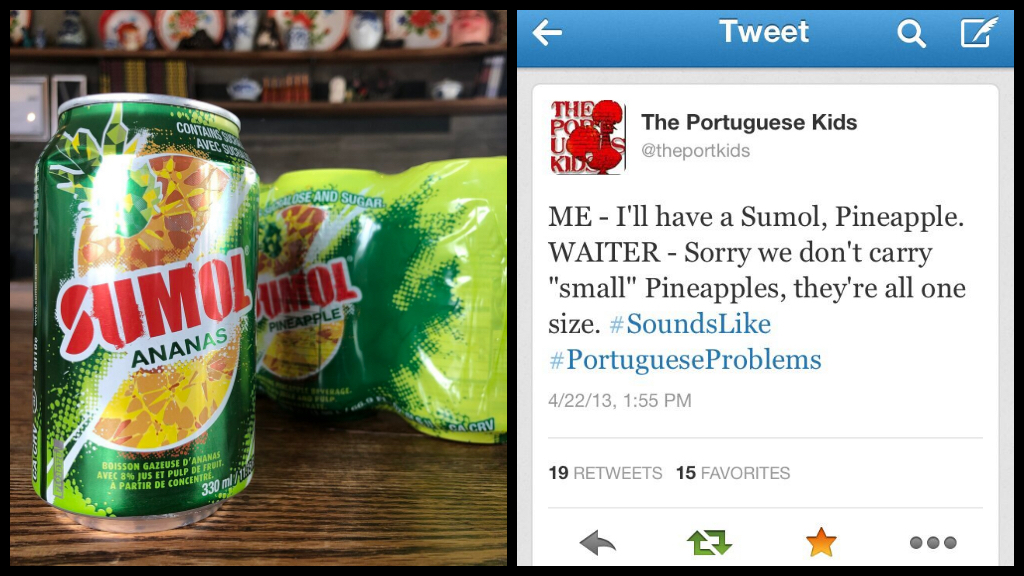
Behold the most popular Portuguese soft drink! Go to any respectable local café or restaurant across Portugal and Sumol will be there. In fact, visit any Portuguese specialized grocery store abroad, in neighborhoods with a big Portuguese presence like in Newark, Toronto or Hamburg and besides Portuguese sweet breads, olive oil, canned sardines and other Portuguese grocery staples, you shall find this beloved soft drink.
As a brand, Sumol has quite a range of flavors. But none of them has gathered such a cult following as Sumol Ananás. This pineapple soda is one of those flavors that reminds many of us of our childhoods, or simpler sweet days that we may take for granted while in Portugal but end up missing when abroad.
Sumol is so well liked that it has been the subject of memes and often featured in youtube videos of influencers while trying out Portuguese foods. Sumol launched the pineapple flavor back in 1958 – that means we’ve had Sumol Ananás for longer than we’ve had democracy in this country, and that’s no joke!
Brisa Maracujá
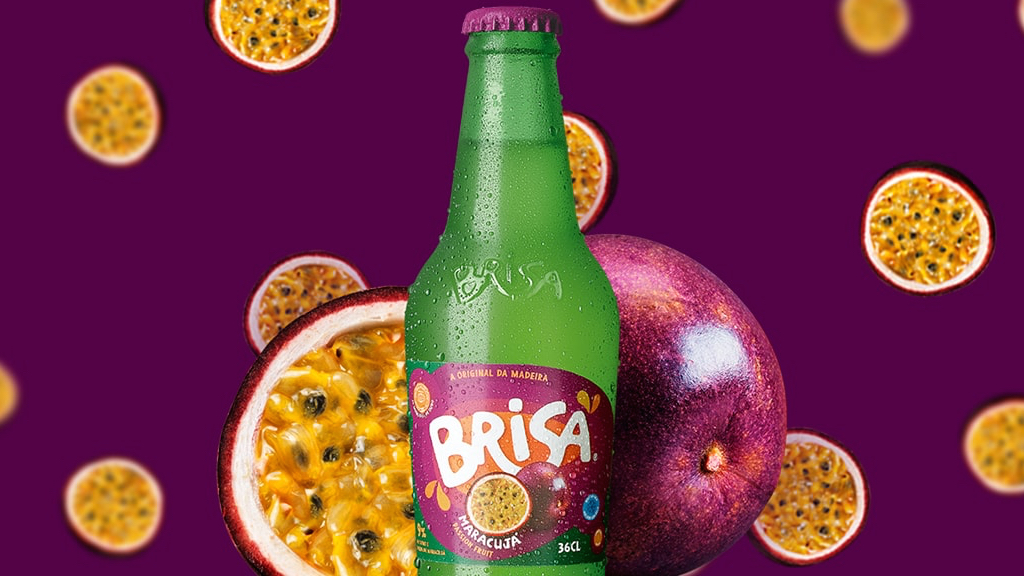
You may not associate tropical fruits such as passion fruit with Portugal, but if you travel to Madeira islands you will notice that this fruit is indeed a local staple.
You will find this sweet and tart fruit in desserts and also in the popular local soda Brisa.
Brisa Maracujá which was launched back in 1970 is just one of Brisa’s flavors but, by far, the most sought-after in the rest of the country.
While this golden coloured soft drink goes beautifully as a mix in for vodka, its sweetness and refreshing qualities make it a great choice on its own as well.
Kima Maracujá
Kima is to the Azores what Brisa is to Madeira. A passion fruit flavored carbonated soft drink, with just the right balance of fruit concentrate, gas and sugar to get you going! While Kima is popular as a mix in for cocktails, it’s also often drunk on its own, best served chilled to balance out its sweetness.
Even if you don’t visit the Azores, you can find Kima in Azores specialized stores in Lisbon such as Mercearia dos Açores.
Laranjada Melo Abreu
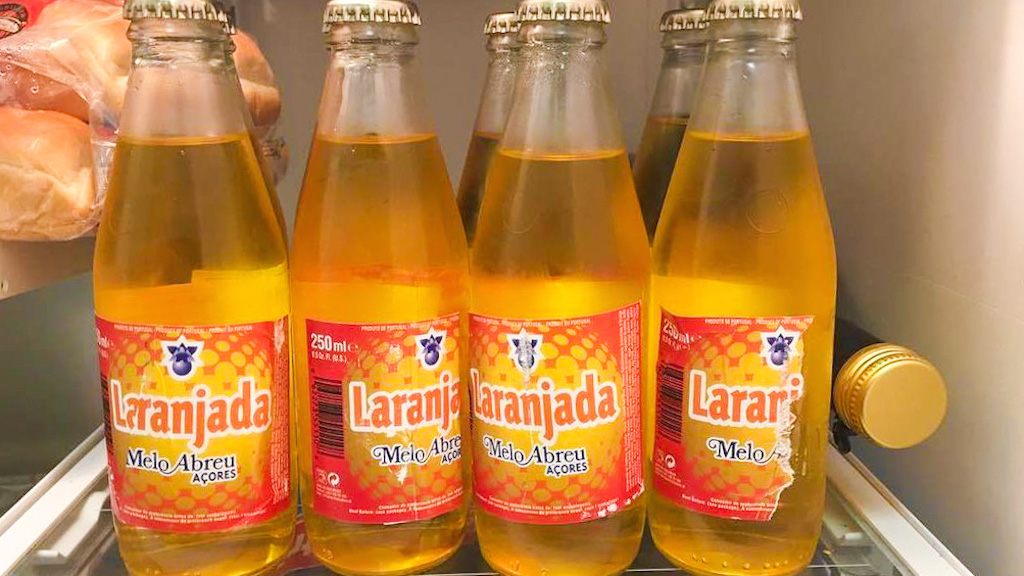
Behold the Azores’ remedy to hangovers, which can naturally be enjoyed no matter what you did the previous night! This shock orange soda from the Portuguese islands is produced in São Miguel and has been raising blood sugar levels of islanders and visitors for over a century.
This is not the type of orange drink you choose when you’d actually like to take in the vitamins or actual flavor of the fruit, but it’s no doubt an iconic drink with an old-school look that you should give a try when visiting the Azores!
Água das Pedras
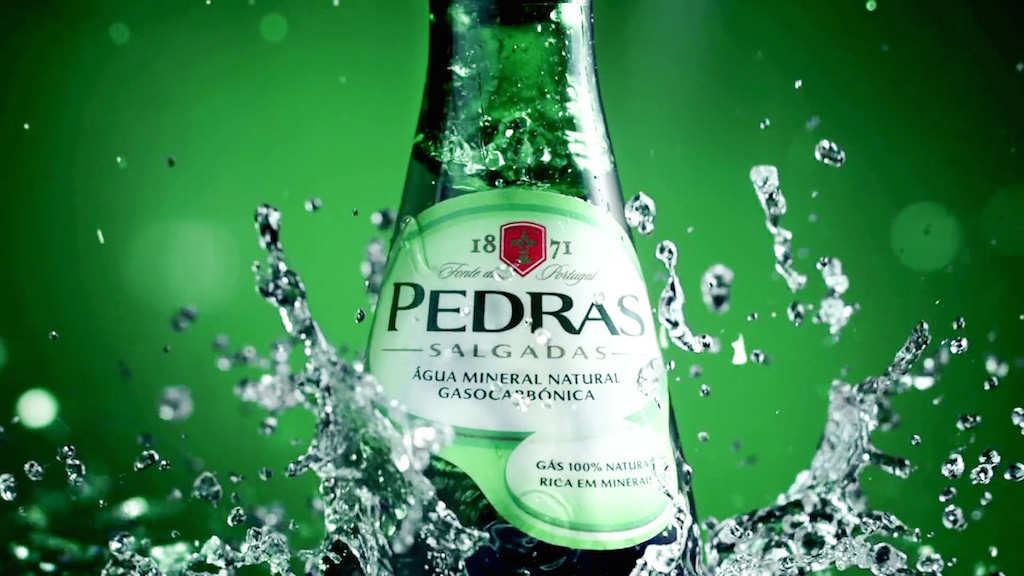
When you’d like to drink sparkling water in Portugal, you can ask for água com gás, or do like many of us do, and simply order Água das Pedras. Even though there are many other companies bottling similar drinks, this brand of naturally sparkling water is so incredibly iconic here in Portugal that it has almost become synonymous with fizzy water itself.
The distinct slightly salty flavor of this water has made it stand out from the other options. Água das Pedras is bottled at source in the northern district of Vila Real, at the town of Pedras Salgadas, which translates into salty stones.
But don’t let this put you off. The minerals are present but in a subtle way. Água das Pedras is still as refreshing as water should be, with such powerful cabronation that it will almost make you doubt that this is a product made by mother nature herself and that has been enjoyed straight out of nature since the times of Roman occupation about 2000 years ago.
Nowadays connoisseurs will tell you that this is some of the finest sparkling mineral water in the world!
Galão and other Portuguese coffee drinks
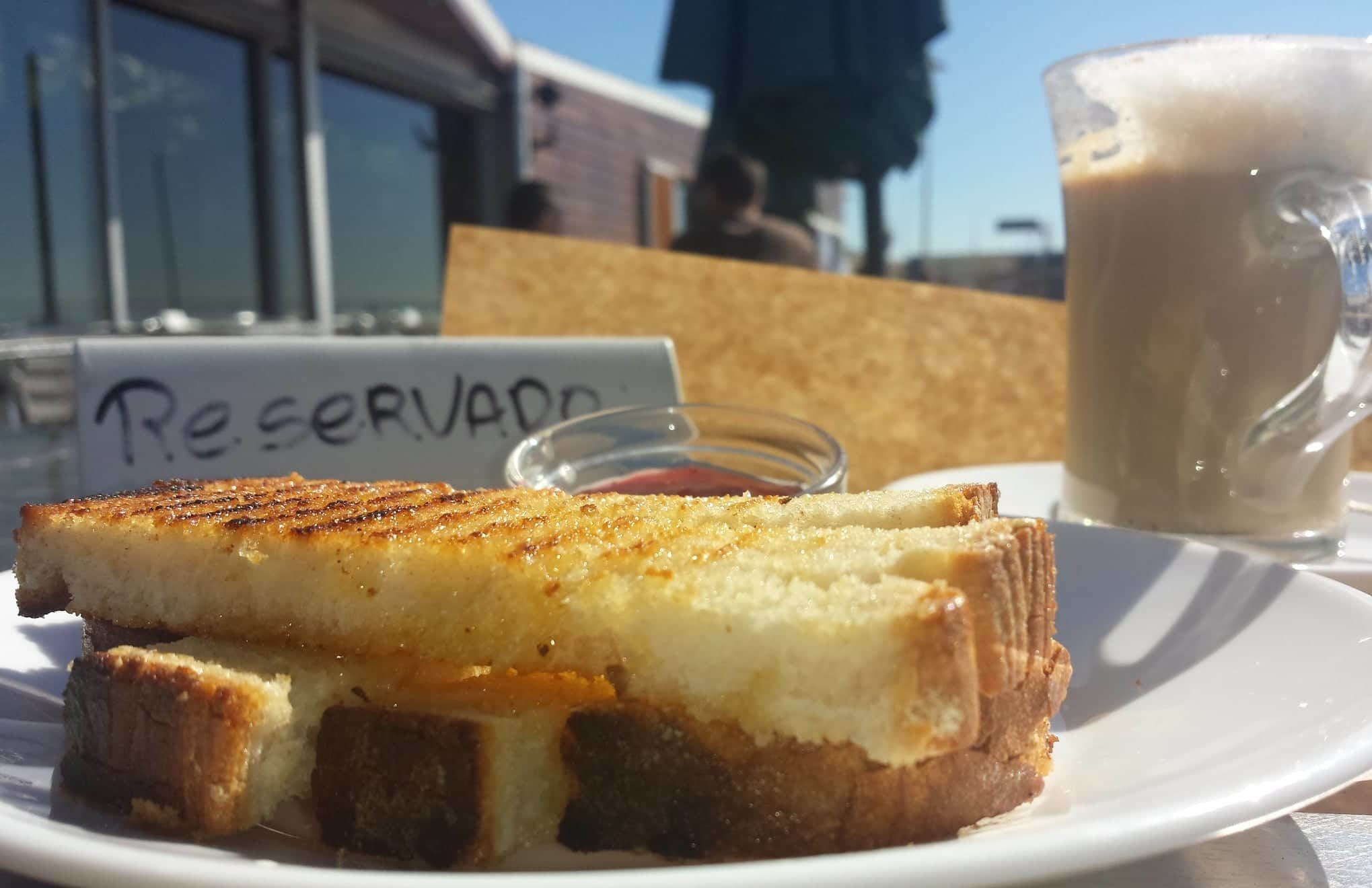 Coffee in Portugal is a democratic experience. Fancy coffee shops have started opening up in urban centers in recent years,but the Portuguese are still pretty set in their habits when it comes to coffee consumption. Espresso, called a bica here in Lisbon, is most locals coffee drink of choice. A short concentrated black coffee is what you drink after meals, but to go along with breakfast or an afternoon coffee break with a bite (typically a pastry or torradas, toast with a very generous spread of melted butter), we often go for milky coffee.
Coffee in Portugal is a democratic experience. Fancy coffee shops have started opening up in urban centers in recent years,but the Portuguese are still pretty set in their habits when it comes to coffee consumption. Espresso, called a bica here in Lisbon, is most locals coffee drink of choice. A short concentrated black coffee is what you drink after meals, but to go along with breakfast or an afternoon coffee break with a bite (typically a pastry or torradas, toast with a very generous spread of melted butter), we often go for milky coffee.
Galão is Portugal’s correspondent to a caffè latte: strong coffee topped with hot milk and a little foam. The norm would roughly involve one part coffee and three parts milk, served in a transparent tall glass with a long spoon so that you can mix in your sugar or simply stir the drink to help it cool down.
Galão is the perfect coffee drink for those who enjoy dunking! Enjoying a galão with a spongy queque or bolo de arroz, Portuguese muffin and rice muffin, is a quintessential Portuguese experience!
Besides galão, other interesting coffee options worth exploring in Portugal include café com cheirinho. Coffee with a scent stands for an espresso topped with a strong alcoholic drink such as aguardente.
Mazagran
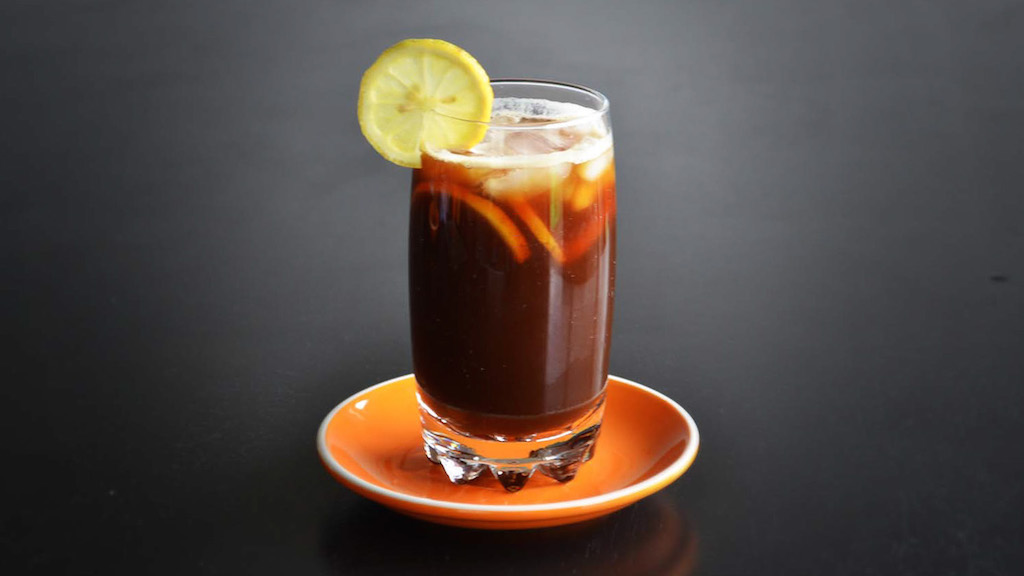
Still within the category of coffee drinks, mazagran is a cold caffeinated beverage mostly associated with the warmer months of the year. Mazagran is believed to have originated in Algeria, and has been popular in Portugal for at least one century.
In a country where cold coffee is still a rarity outside more contemporary speciality coffee shops, mazagran is the most refreshing coffee option which you can come across in most corner cafés and pastelarias. It’s basically espresso served in a glass with plenty of ice and lemon.
Each establishment will serve this drink following their own interpretation. Sometimes you get plenty of squeezed lemon juice mixed with your coffee, while other times it’s little more than a lemon slice.
Mazagran may come sweetened beforehand or you may be served a sachet of sugar to sweeten it up to your own taste. Fresh mint leaves may also make an appearance in fancier places, particularly bars. If you like the kick of coffee and the cooling effects of lemonade but never thought you’d be able to enjoy both simultaneously, we suggest you give mazagran a try when you visit Portugal!
Capilé
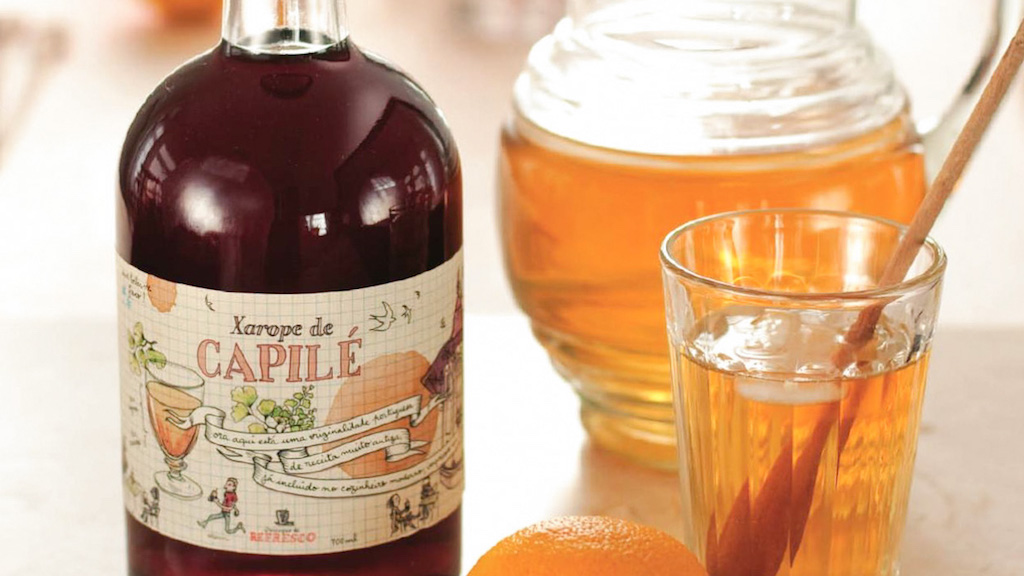
When it comes to refreshing drinks for the hot summer months of Lisbon, capilé, also known as capillaire in English, used to be a given but, unfortunately, it’s not so much the case these days.
Capilé is quite an old Portuguese recipe dating back to the 1700s. It’s made from cordial syrup that includes a blend of herbs such as maidenhair leaves and orange blossom. The syrup is diluted in water with ice, resulting in a truly refreshing not too overly sweet drink.
In Lisbon your best chances of coming across capilé will be when visiting the kiosk in Luis de Camões Square downtown or, rather surprisingly, at Manteigaria that, apart from specializing in pastel de nata, is reviving drinks such as this one to enjoy along with their freshly baked pastries. If you visit one of the stores of A Vida Portuguesa you can also buy capilé cordial syrup to make your own drink at home!
Azorean Tea
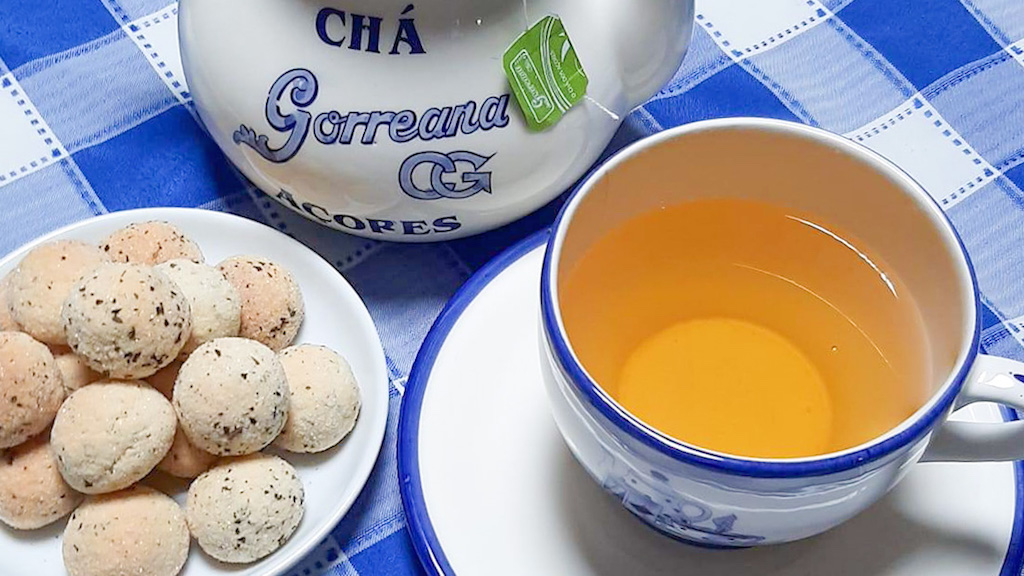
If you’re a tea lover traveling to Portugal, make sure you include the Azores islands in your itinerary. Here you’ll be able to visit the only tea plantation in Europe, Gorreana Tea Factory. Gorreana produces black and green tea, even though it has indeed become more known in our country for the younger green variety.
Unfortunately, you may not be able to find Gorreana tea in all cafés in Lisbon or the rest of the country, but this is a singular tea you can enjoy in specialized establishments or purchase to take back home and brew a cup of Portugal when you start missing us. Let’s face it: sooner or later, that will happen!
Portuguese alcohol-free wines and beers
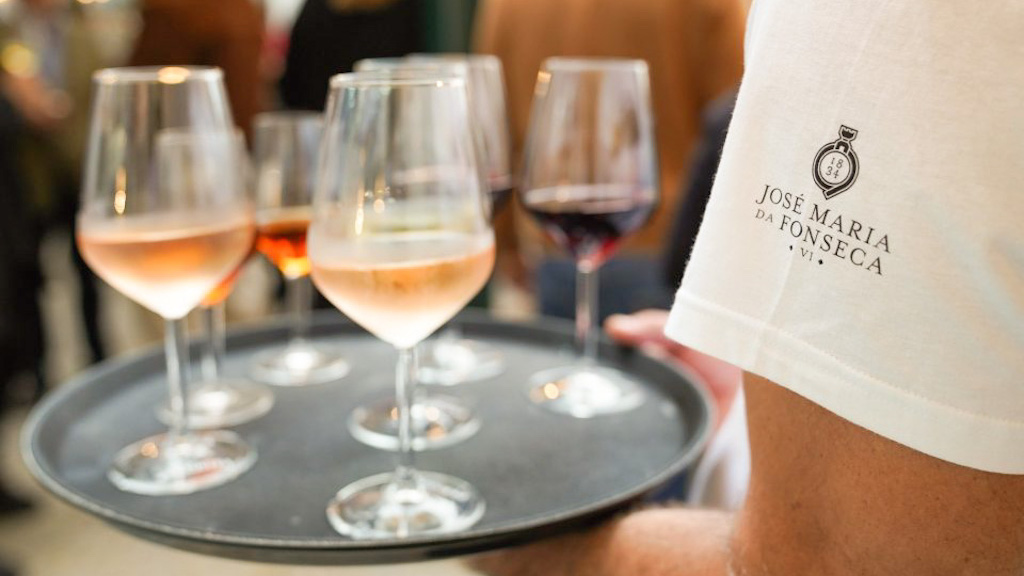
0% alcohol beers are a market staple in most parts of the world these days and Portugal is no exception. In most places, the biggest beer brands of our country, Sagres and Super Bock, will also make available their alcohol-free options.
On the other hand, alcohol-free wines are a more recent and growing trend. José Maria da Fonseca was the pioneer company to introduce the first alcohol-free wine in Portugal, under the brand name O%riginal, a little over one year ago. A great way to enjoy your white, red or rosé wine with 0% changes of a hangover as well!
If Portugal is known for its incredible range of wines and alcoholic drinks, it’s also true that you don’t need no booze to have a great time when you visit us. When in Lisbon, allow Taste of Lisboa’s team to introduce you to these and many other spectacular Portuguese flavors!
Feed your curiosity on Portuguese food culture:
How to discover Lisbon with kids – And survive to tell the story!
How to identify the perfect Portuguese custard tart
A day at the beach, Portuguese Style
10 typical drinks from Portugal
Real people, real food. Come with us to where the locals go.
Signup for Taste of Lisboa’s next natively curated food & cultural experience
Follow us for more at Instagram, Twitter e Youtube

